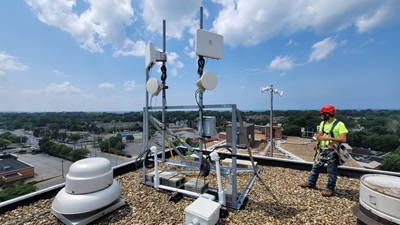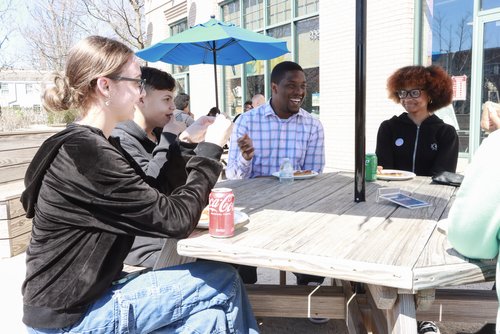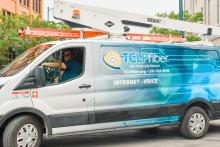
Innovative digital equity nonprofit DigitalC has been working for years to shore up affordable broadband access in underserved cities like Cleveland, Ohio.
Now the organization is enjoying new momentum for its plans to expand fixed wireless broadband access in the city thanks to a $500,000 cash infusion from tech giant Google. According to a recent announcement, the donation includes next-generation Fixed Wireless Access (ngFWA) equipment from Tarana, which will allow DigitalC to expand its Canopy home broadband service – which provides symmetrical 100 megabit per second (Mbps) at $18 a month – to even more neighborhoods in Ohio.
The nonprofit just celebrated the connection of its 6,000th household in Cleveland, a city once ranked the worst-connected large city in the U.S. by the National Digital Inclusion Alliance (NDIA).

“This meaningful investment from GFiber adds bandwidth to our capacity to scale the Cleveland Model,” DigitalC CEO Joshua Edmonds said of the cash infusion. “This community-based blueprint proves that next-generation technology can be deployed quickly, trusted deeply, and scaled effectively to deliver the superior internet experience more communities deserve.”
Cleveland’s broadband market has historically consisted of a monopoly or duopoly featuring either Charter (Spectrum) or AT&T, the latter of which has a long history of failing to upgrade aging DSL networks to fiber. The lack of competition has long resulted in spotty access, high prices, and substandard customer service.
A 2017 study by the NDIA showed how Cleveland minority and low income neighborhoods were routinely overlooked for upgrades and repairs by powerful local telecom monopolies like AT&T, a tactic historically known as “redlining.” Other investigations have found AT&T routinely charges minority and low-income neighborhoods more money for slower broadband access.
The organization found similar evidence of digital redlining in cities like Cleveland, Dayton, Detroit, and Toledo. Federal regulators have been slow to tackle both monopoly power and this sort of “digital discrimination,” and the Trump administration has rolled back any meaningful recent federal progress with its illegal dismantling of the Digital Equity Act.

The federal apathy toward broadband affordability and deployment discrimination has placed increased pressure on states, municipalities, and local nonprofits to fill the void.
DigitalC’s fixed wireless service, Canopy, launched in 2018 and accelerated its deployment in 2020 to meet the needs of frustrated Cleveland parents and workers during peak COVID.
In 2023, the organization was buoyed by a $20 million ARPA (American Rescue Plan Act) grant awarded by officials to expand access to the entire Cleveland area.
In addition to the symmetrical 100 Mbps $18 a month option, DigitalC is working to provide digital skills training to around 50,000 Cleveland residents over a four year span. The organization also recently completed its first effort outside of Cleveland; a pilot network that's now bringing 500 Mbps wireless broadband to 400 families living in public housing across Detroit, Michigan.
Last year Edmonds spoke with Chris Mitchell about the challenges of bringing affordable access to Cleveland in Episode 589 of the Community Broadband Bits Podcast.
Inline images courtesy of DigitalC







